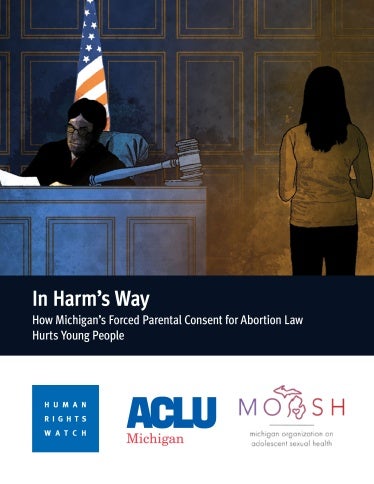After the Storm
A new web feature looks at climate change, planned relocation, and people with disabilities in Siargao, Philippines.
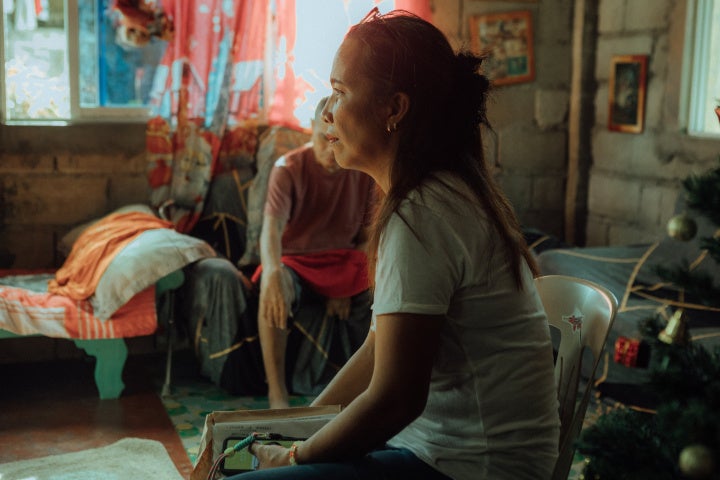
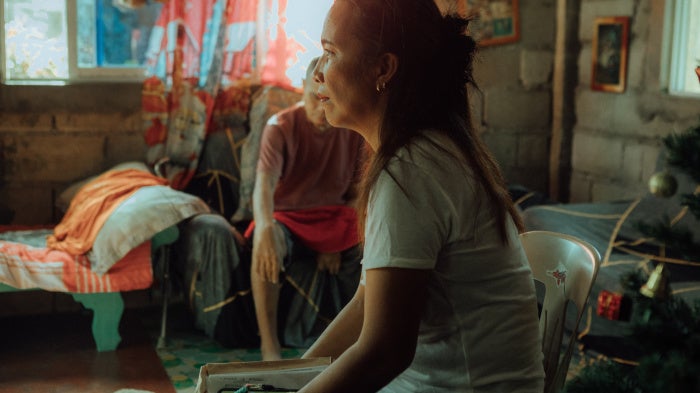
A new web feature looks at climate change, planned relocation, and people with disabilities in Siargao, Philippines.


The 55-page report, “Out of Step: US Policy on Voting Rights in Global Perspective,” examines the laws of 136 countries around the world with populations of 1.5 million and above and finds that the majority—73 of the 136—never, or rarely, deny a person’s right to vote because of a criminal conviction. In the other 63 countries, the United States sits at the restrictive end of the spectrum, disenfranchising a broader swath of people overall.

The 63-page report “Education under Occupation: Forced Russification of the School System in Occupied Ukrainian Territories,” documents violations of international law by the Russian authorities in relation to the right to education in formerly occupied areas of Ukraine’s Kharkivska region, and other regions that remain under Russian occupation. Russian authorities have forced changes to the curriculum and retaliated against school staff who refused to make such changes with threats, detention, and even torture. Human Rights Watch also found that occupying authorities threatened parents whose children were learning the Ukrainian curriculum online.

In the 86-page report, “‘Why Do They Hate Us So Much?’: Discriminatory Censorship Laws Harm Education in Florida,” the groups say that Florida leaders are reshaping elementary, middle, and high school classroom content through new laws and policies that censor, distort, and discriminate. Such laws restrict classroom instruction about race in US history, sexual orientation, and gender identity, ban books reducing the information available to students, and promulgate inaccurate and misleading civics and history standards.

The 68-page report, “Lay a Strong Foundation for All Children”: Fees as a Discriminatory Barrier to Pre-Primary Education in Uganda,” documents how lack of access to free pre-primary education leads to poorer performance in primary school, higher repetition and drop-out rates, and widening income inequality. Fewer than 1 in 10 Ugandan children ages 3-5 are enrolled in a registered and licensed pre-primary school – known locally as “nursery” school – and 60 percent attend no school at all until they reach primary school. Pre-primary education refers to early childhood education before a child’s entry into primary school, which in Uganda is at age 6.

In the 41-page report, “‘No Way Out’: Debt Imprisonment in Tunisia,” Human Rights Watch documents the consequences of Tunisia’s archaic legislation on checks with insufficient funds. The law, in addition to sending insolvent people to prison, or to live in hiding or exile, fuels a cycle of indebtedness and reduces entire households to lives of hardship. In the context of Tunisia’s current economic crisis, the authorities should urgently replace the legal provisions that allow for debt imprisonment with legislation that distinguishes between willful refusal and genuine inability to pay.

The 48-page report, “‘I Escaped with Only My Life:’ Abusive Forced Evictions in Pakistan,” documents widespread and abusive forced evictions that disproportionately affect the most economically and socially marginalized communities in Pakistan. The authorities have evicted thousands of people without adequate consultation, notice, compensation, resettlement assistance, or means of redress in violation of their basic rights.

The 95-page report, “‘I Swear to Fulfill the Duties of Defense Lawyer Honestly and Faithfully’: Politically Motivated Crackdown on Human Rights Lawyers in Belarus,” documents the near complete government takeover of the legal profession in Belarus and repression against human rights lawyers by Aliaksandr Lukashenka’s government.

The 71-page report, “‘Educate the Masses to Change Their Minds’: China’s Coercive Relocation of Rural Tibetans,” details how participation in “whole-village relocation” programs in Tibet, in which entire villages are relocated, amounts to forced eviction in violation of international law. Officials misleadingly claim that these relocations will “improve people’s livelihood” and “protect the ecological environment.” The government prevents relocated people from returning to their former homes by generally requiring them to demolish these homes within a year of relocating.
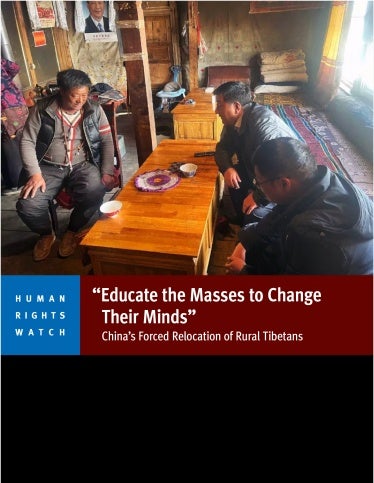
Repression and Forced Return of Refugees in Thailand
The 218-page report, “‘The Massalit Will Not Come Home’: Ethnic Cleansing and Crimes Against Humanity in El Geneina, West Darfur, Sudan,” documents that the Rapid Support Forces, an independent military force in armed conflict with the Sudan military, and their allied mainly Arab militias, including the Third-Front Tamazuj, an armed group, targeted the predominantly Massalit neighborhoods of El Geneina in relentless waves of attacks from April to June. Abuses escalated again in early November. The attackers committed other serious abuses such as torture, rape, and looting. More than half a million refugees from West Darfur have fled to Chad since April 2023. As of late October 2023, 75 percent were from El Geneina.
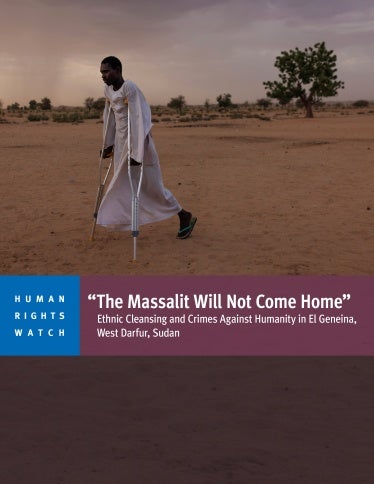
The 68-page report, “We Couldn’t Wait: Digital Metering at the US-Mexico Border,” details how the Biden and López Obrador administrations have made a difficult-to-use US government mobile application, CBP One, all but mandatory for people seeking asylum in the United States. The result is de facto “metering,” a practice formalized early in the Trump administration that limits the number of asylum seekers processed at ports of entry each day, turning others back to Mexico.
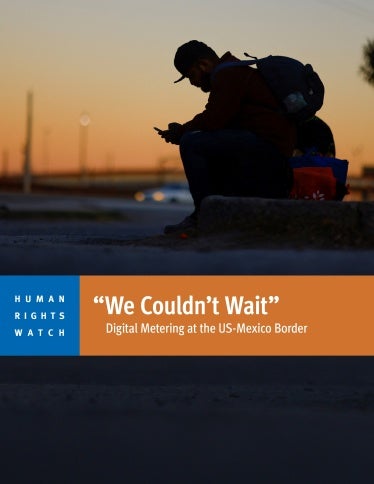
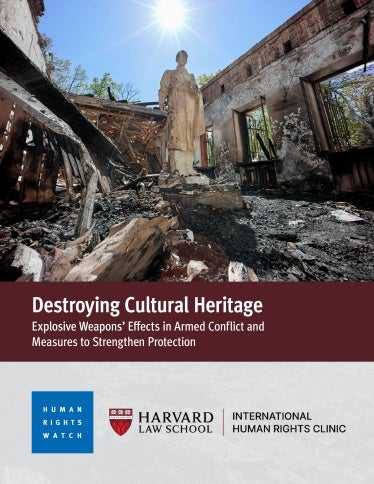
The 110-page report, “Neglected in the Jungle: Inadequate Protection and Assistance for Migrants and Asylum Seekers Crossing the Darién Gap,” is the second in a series of Human Rights Watch reports on migration via the Darién Gap. Human Rights Watch identified specific shortcomings in Colombia’s and Panama’s efforts to protect and assist people – including those at higher risk, such as unaccompanied children – as well as to investigate abuses against them.
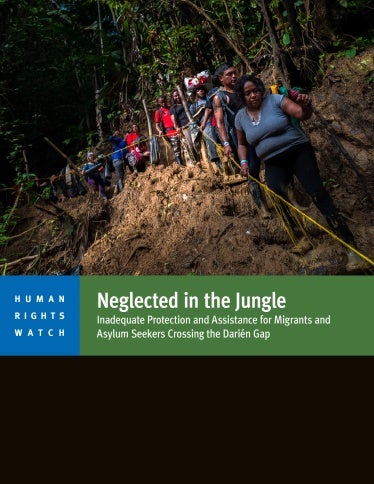
The 49-page report, “‘The Boot on My Neck’: Iranian Authorities’ Crime of Persecution Against Baha’is in Iran,” documents Iranian authorities’ systematic violation of the fundamental rights of members of the Baha’i community through discriminatory laws and policies that target them. Human Rights Watch found that Baha’is face a spectrum of abuses. Government agencies arrest and imprison Baha’is arbitrarily, confiscate their property, restrict their education and employment opportunities, and even deny them dignified burial.
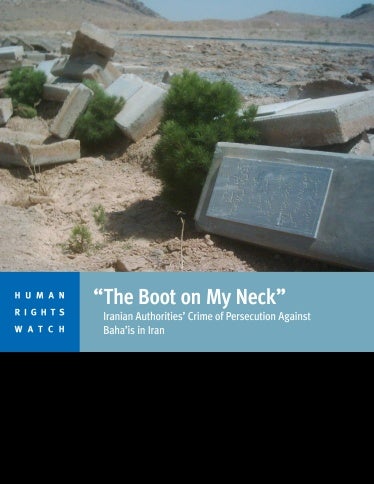
The 36-page report, “In Harm’s Way: How Michigan’s Forced Parental Consent for Abortion Law Hurts Young People” examines the impact of a Michigan law that requires people under age 18 seeking an abortion to have a parent or legal guardian’s written consent or get approval from a judge in a process known as “judicial bypass.”
